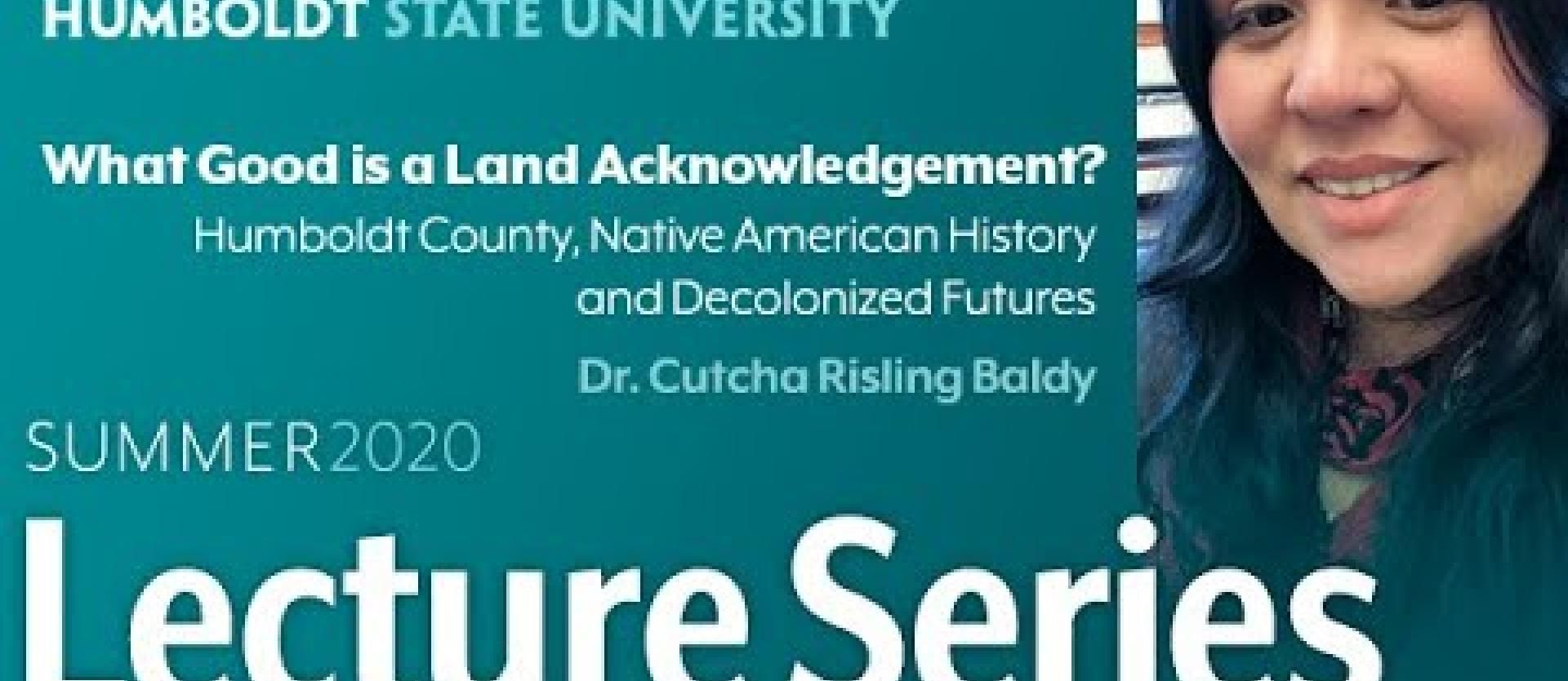Breadcrumb
Cultural Humility
What Good is a Land Acknowledgement By Humboldt Professor Dr. Cutcha Risling Baldy

Description of Cultural Humility
Cultural Humility is a twist on cultural competency. First and foremost, cultural humility means not pigeon-holing people. Knowledge of different cultures and their assumptions and practices is indeed important, but it can only go so far. Rather than assuming that all members of a culture conform to a certain stereotype, a good student leader will understand that while cultural differences will affect their interaction with individuals, each person remains an individual and should be treated as such. Cultural humility is also an important step in helping to redress the imbalance of power in individual and structural / societal relationships. Approaching each encounter with the knowledge that one’s own perspective is full of assumptions and prejudices can help one to keep an open mind and remain respectful of other people and groups.
Recognition of Land & Labor Acknowledgement
It is important that we recognize whose land we occupy here at Cal Poly Humboldt and whose labor was used so we can begin to understand the impact colonization has had on our communities. Ideally, we would go beyond just land/labor recognition and start returning land to the original caretakers. But as a starting point for understanding the imapact of colonization, we wanted to provide some potential statements you could/should share at each of your events:
Sample Land Acknowledgement:
In Person: Cal Poly Humboldt is located on the present and ancestral Homeland and unceded territory of the Wiyot Tribe. Please donate to the Wiyot Tribe honor tax. We encourage direct giving to Tribes and Native-led efforts. Tribes and Nations in Humboldt County include Hupa, Karuk, Mattole, Tolowa, Wailaki, Wiyot, Yurok. We make this land acknowledgement in recognition that our words must be matched by action and approach. Please learn from Dr. Cutcha Risling Baldy's lecture "What Good Is a Land Acknowledgment?"
Virtual: We acknowledge that the land that many of us are on as we gather virtually is likely unceded territory of the Wiyot People. Arcata, where Humboldt is located, is known in Wiyot language as Goudi'ni, meaning over in the woods. As well as being the aboriginal territory of the Wiyot, this region of Northern California is also the traditional, ancestral, and present homeland to several indigenous nations, including the : Hupa Karuk, Mattole, Tolowa, Wailaki, and Yurok peoples. Today, we come with respect to the tribes who have been here for millenia and model how to live in sustainable relationships with the land. We take this opportunity to consider what action steps we can take in addition to acknowledging the land.
Sample Labor Acknowledgemnt:
Today we recognize and acknowledge the labor upon which our country, state, and institutions are built. Remember that our country is built on the labor of enslaved people who were kidnapped and brought to the US from the African Continent and recognize the continued contribution of their survivors. We acknowledge all immigrant labor, including voluntary, involuntary, and trafficked peoples who continue to serve within our labor force
To Do
- Activity: Implicit Bias Test
- Activity: Diversity Awareness Quizzes
- Activity/Article: Strategies, Icebreakers, and Introspectives for Multicultural Awareness
- Actvity: Identify whose land you occupy by searching on this Map (Native-Land.ca)
- Website: Anti-Racism Resource Guide
To Watch
- Video: What is Cultural Humility
To Read
- Journal Article: Cultural Humility as an alternative to Cultural Competence
- Website: Facilitating conversations on racism, prejudice, and discrimination
- Article/Blogpost: Understanding Prejudice: Tips for K-6 Teachers
- Article/Blogpost: Six steps to step up and call out- Teaching Tolerance
- Book: Between the world and Me by Ta-Nehisi Coates
- Book: Americanah by Chimamanda Ngozi Adichie
- Book: Sister Citizen: Shame, Stereotypes and Black women in America by Melissa V. Harris- Perry
- Book: Drown by Junot Diaz
- Book: The Brief Wondrous Life of Oscar Wao by Junot Diaz
- Book: Any book by Audre Lorde
- Book: Race Matters by Cornel West
- Book: Pedagogy of the Oppressed by Paulo Freire
- Book: An Indigenous People’s History of the United States by Roxanne Dunbar-Ortiz
- List of Books: A to Z Social Justice Book Challenge (Books about and by diverse people and perspectives)
- List of Books: Books about Environmental Racism, White Privilege, and Climate Justice





